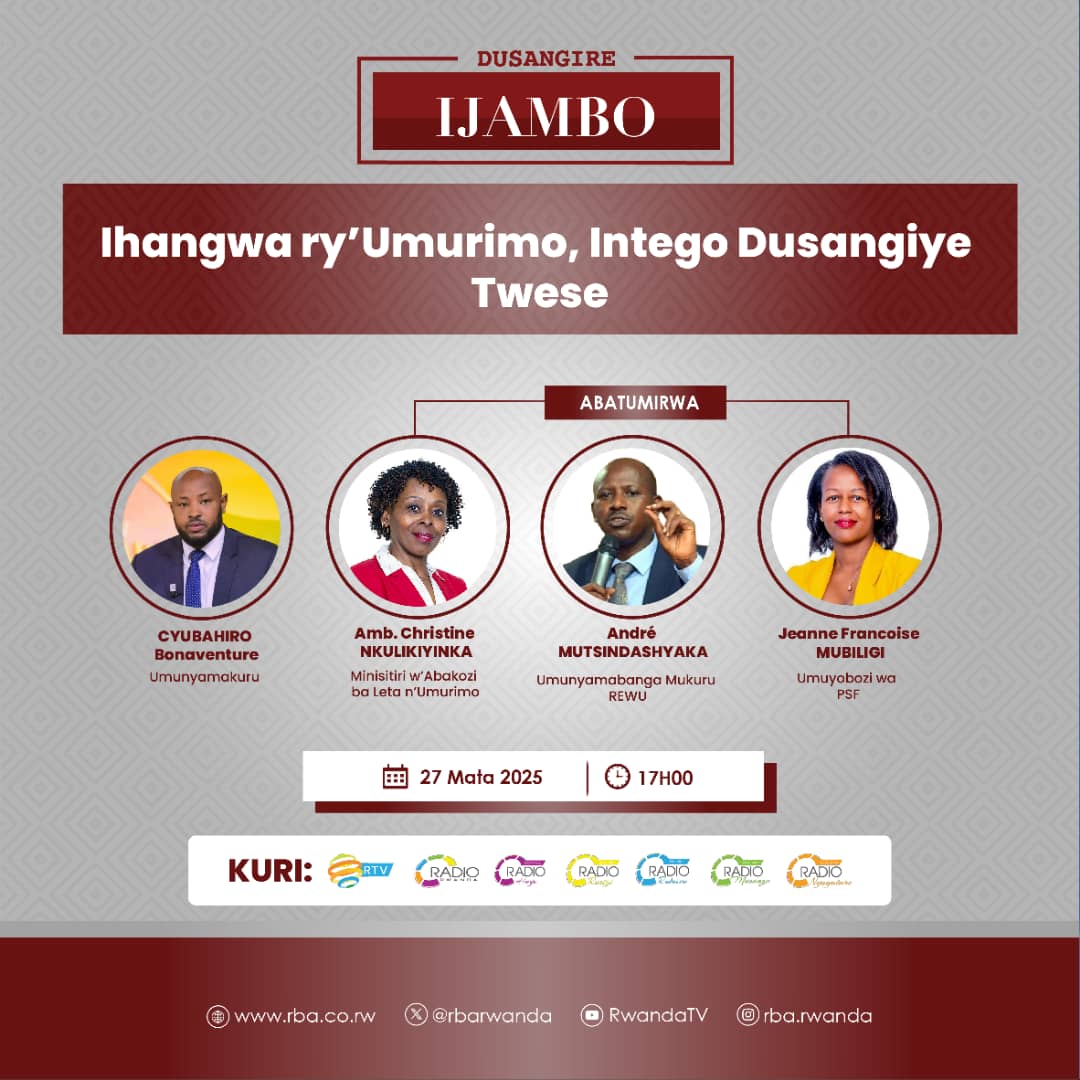The Rwanda Extractive Industry Workers Union (REWU) is excited to announce the upcoming establishment of six training centres across the country, aimed at providing comprehensive mining training under the Workplace Learning Support Programme (IGIRA KU MURIMO).
This initiative is part of a collaborative effort involving the Ministry of Education, the Ministry of Public Service and Labour, and various partners, all dedicated to bridging the skills gap between job seekers and the evolving demands of the labor market.
During an interview on RBA’s Dusangire Ijambo program, Jeanne Françoise Mubiligi, Chairperson of the Private Sector Federation (PSF), addressed the pressing issue of skills shortages in light of Rwanda’s rapid economic growth. She emphasized that this growth has created an array of new projects necessitating innovation and technology, leading to a talent mismatch. “To address this, PSF has engaged in discussions with the Ministry of Education to ensure that our education system provides both knowledge and practical skills through work placements. This approach will help us produce the workforce needed for the future,” she stated.
The Workplace Learning Support Programme integrates training time in Technical and Vocational Education and Training (TVET) institutions, where participants can develop soft skills, with hands-on experience in companies where they can practice their skills. Trainees undergo assessments, and those who succeed are awarded certificates, allowing them to showcase their competencies and ease their transition into employment.
André Mutsindashyaka, Secretary General of REWU, highlighted the significance of the new centres, noting that they are designed specifically for miners who have not received formal training. He explained, “While mining in Rwanda has a rich history dating back to 1930, formal training at institutions like the University of Rwanda and RP-Kigali College has only emerged in the last ten years. With these six centres, we will train around 450 miners on the job.”
Minister of Public Service and Labour, Ambassador Nkulikiyinka, praised the programme’s success, pointing out that approximately 70% of participants find employment soon after completing their training. She urged the private sector to provide more internship opportunities to further enhance job creation efforts.
The Minister also encouraged those already in employment to continuously upgrade their skills to adapt to shifting job market demands, stressing the importance of technology in fostering job creation.
Recent statistics from the National Institute of Statistics of Rwanda (NISR) indicate significant progress in employment, with approximately 358,000 new jobs created in 2024 alone. The number of employed individuals rose from around three million in 2017 to 4.4 million in 2024, effectively improving living standards and reducing poverty levels from 40% to 24.7%.
Mubiligi reported a 43% growth in private businesses over the past seven years, with 95% of new jobs emerging in the private sector. “Our mandate includes supporting various federations, such as those for women entrepreneurs and youth, while advocating for business-friendly regulations,” she affirmed.
Despite these advances, challenges remain regarding employment contracts in the private sector. Current figures reveal that only 28% of permanent employees have formal contracts, in contrast to 66% of casual laborers. Mutsindashyaka called for continued negotiations with employers to ensure better job security for workers, stating, “Having formal contracts is crucial as they protect workers’ rights and help them access necessary services like loans.”
Mubiligi echoed Mutsindashyaka’s sentiment, underscoring the importance of contracts for job security, insurance, and a fair workforce. “Without contracts, workers risk losing basic rights and social protections, which is detrimental to their long-term stability.”
At REWU, we remain committed to promoting decent work and advocating for the rights of all workers in Rwanda’s extractive industry. Through initiatives like the Workplace Learning Support Programme, we are striving to create a skilled workforce ready to meet today’s challenges and contribute positively to our society.



Leave a Reply